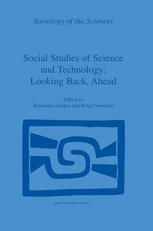

Most ebook files are in PDF format, so you can easily read them using various software such as Foxit Reader or directly on the Google Chrome browser.
Some ebook files are released by publishers in other formats such as .awz, .mobi, .epub, .fb2, etc. You may need to install specific software to read these formats on mobile/PC, such as Calibre.
Please read the tutorial at this link: https://ebookbell.com/faq
We offer FREE conversion to the popular formats you request; however, this may take some time. Therefore, right after payment, please email us, and we will try to provide the service as quickly as possible.
For some exceptional file formats or broken links (if any), please refrain from opening any disputes. Instead, email us first, and we will try to assist within a maximum of 6 hours.
EbookBell Team

4.4
72 reviewsThis volume was originally conceived as a contribution to yet another 'turn', not captured by one of the many adjectives that have served to describe the collective meandering of the scholarly community in search of direction. It was meant to mark the millennial turn, a seemingly purely chronological event, but one in search for great meanings and invested with loaded significances. The editors wanted to seize the opportunity of the moment in order to pause and reflect on the sociology and history of social studies of science and technology. The moment came and went and the new millennium, barely nine months later, thrust its historical marker upon the world through a horrendous and cruel shock in an unforeseen and unforeseeable way. Since then, the world appears more vulnerable and volatile, fragmented and fraught with uncertainty. The universal values as bequeathed by the Enlightenment are either refused or appear refuted. The dream of a universal civilization which has accompanied the unfolding of the existing multiple modernities in their historically unique trajectories, has been discarded and its promises in tatters. The belief in a process of progressive rationalization and in the ongoing, although repeatedly disrupted, validation of universal cultural forms, which have been hailed as providing the underlying strength in the relation between science and society (whatever is understood by these terms), clearly is in need of revision.
This volume brings together contributions that resemble spotlights thrown on the past twenty-five years of science and technology studies. It covers a broad range: history of science; science and politics; science and contemporary democracy; science and the public; science and the constitution; science and metaphors; and science and modernity and provides a critical overview of how the field of science and technology studies has emerged and developed.